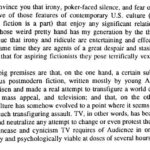This is a proclamation concerning the very essence of Christian faith, drawn from the first letter of John, chapter one. It delves into the foundational experiences of the apostles and the core message they conveyed to the world. This passage emphasizes the tangible reality of Jesus Christ, the “Word of life,” and its implications for believers in terms of fellowship, truth, and moral conduct.
The Tangible Word of Life
The passage commences by anchoring itself in the “beginning,” evoking echoes of Genesis and the eternal nature of the divine Word. The author, part of the apostolic eyewitness group, asserts their direct sensory engagement with this “Word of life.” They heard, they saw with their own eyes, they intently observed, and even physically touched this entity. This isn’t abstract philosophy but a lived, concrete encounter. This emphasis on sensory experience – hearing, seeing, touching – underscores the incarnational reality of Jesus. He is not a myth or a distant concept, but someone tangibly present in human history, accessible to human senses.
The text highlights a pivotal event: “The life appeared.” This appearance is not merely existence but a manifestation, a revealing of life itself. The apostles witnessed this life, testified to it, and now proclaim it as “eternal life.” This eternal life was pre-existent, “with the Father,” and has now become manifest “to us.” This declaration is crucial; it positions Jesus not just as a historical figure, but as the embodiment of eternal life, intimately connected to God the Father and made accessible to humanity.
The purpose of this proclamation is explicitly stated: fellowship. The apostles share what they have seen and heard so that their audience “may have fellowship with us.” This fellowship isn’t limited to human connection; it extends to “the Father and with his Son, Jesus Christ.” The message of I John 1 is an invitation into a community of faith, centered on the tangible reality of Jesus Christ and united in fellowship with God. The joy of the apostles will be made complete through this shared fellowship, highlighting the communal aspect of Christian faith and the joy found in unity with God and fellow believers.
Walking in Light and Truth
Shifting focus, the passage transitions to the implications of this “Word of life” for moral living. The core message declared, received directly “from him,” is profound: “God is light; in him there is no darkness at all.” This is a powerful metaphor. Light symbolizes truth, purity, goodness, and God’s very nature. Darkness represents falsehood, sin, and separation from God.
The text immediately addresses a critical point: the hypocrisy of claiming fellowship with God while living in darkness. To “walk in the darkness” while professing fellowship with God is a lie, a contradiction of the truth. True fellowship demands alignment with God’s nature, which is light. Conversely, “walking in the light,” as God Himself is in the light, is the pathway to genuine fellowship. This path leads to fellowship “with one another” – believers united in shared truth and light – and to the cleansing power of “the blood of Jesus, his Son, purifies us from all sin.” This verse introduces the crucial concept of atonement and forgiveness through Jesus’ sacrifice, essential for those who strive to walk in the light but inevitably stumble.
Confession, Forgiveness, and Truth
The passage then tackles the issue of sin and self-deception head-on. Claiming to be “without sin” is self-deception, a denial of reality, and a rejection of truth. The antidote to this self-deception is confession. “If we confess our sins,” the text assures, God is “faithful and just and will forgive us our sins and purify us from all unrighteousness.” This is a cornerstone of Christian teaching: God’s unwavering faithfulness and justice are revealed in His willingness to forgive confessed sins and cleanse believers from all unrighteousness.
The final verse reiterates the danger of denial. To claim “we have not sinned” is not just self-deception; it makes God out to be a liar. It rejects God’s word and truth. Acknowledging our sinfulness is not a sign of weakness but a prerequisite for experiencing God’s forgiveness and walking in the light. I John 1 powerfully presents the foundational truths of the Christian faith: the tangible reality of Jesus Christ as the Word of life, the necessity of walking in the light of God’s truth, and the transformative power of confession and forgiveness through Jesus Christ. This message remains profoundly relevant for believers seeking genuine fellowship with God and a life lived in truth.

